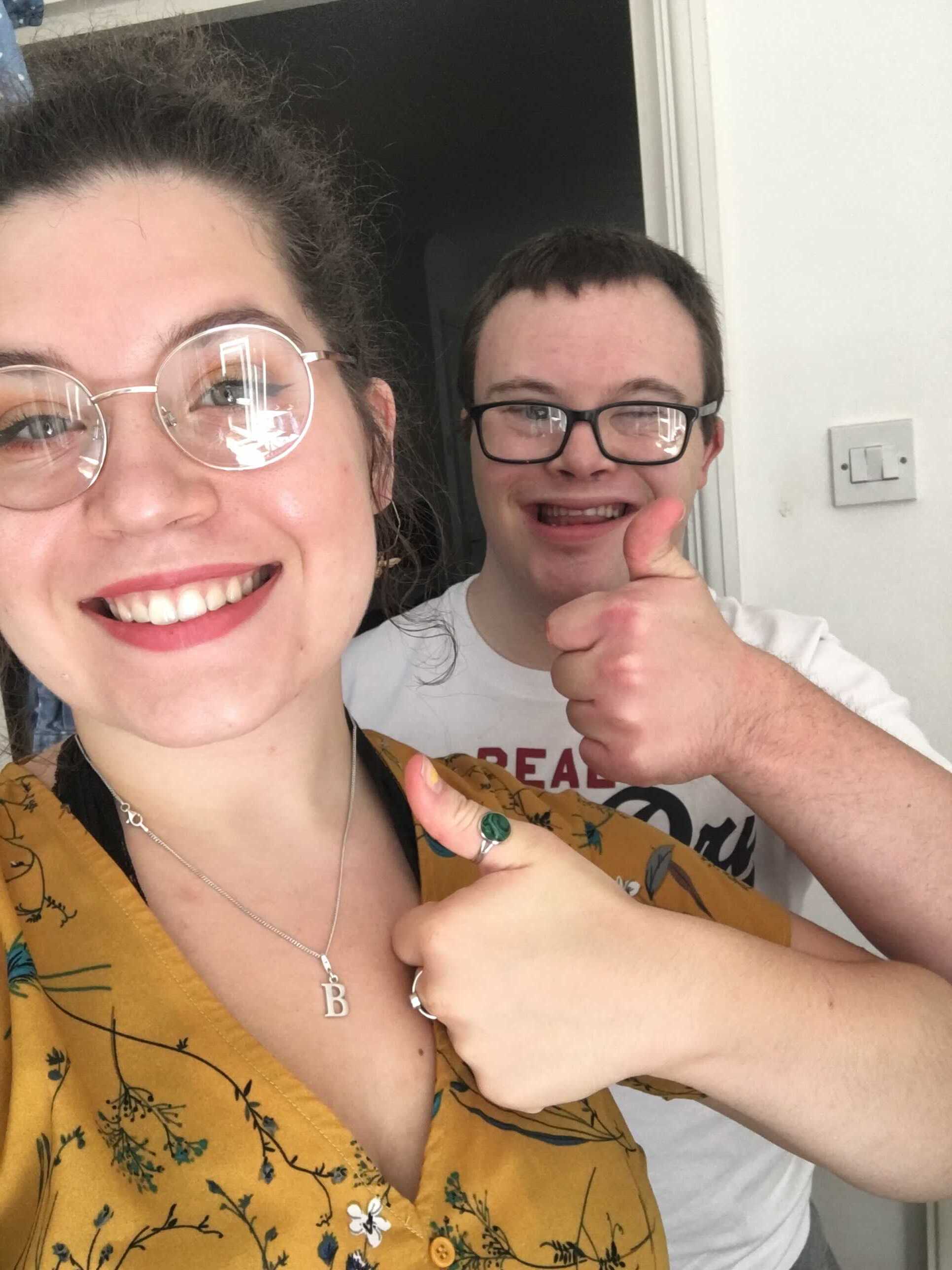Richard Dawkins’ argument against women having babies with Down’s Syndrome is nothing more than eugenics
Dawkins’ warped views don’t recognise disabled people as individuals, instead judging them as burdensome and not worthy of life

Your support helps us to tell the story
From reproductive rights to climate change to Big Tech, The Independent is on the ground when the story is developing. Whether it's investigating the financials of Elon Musk's pro-Trump PAC or producing our latest documentary, 'The A Word', which shines a light on the American women fighting for reproductive rights, we know how important it is to parse out the facts from the messaging.
At such a critical moment in US history, we need reporters on the ground. Your donation allows us to keep sending journalists to speak to both sides of the story.
The Independent is trusted by Americans across the entire political spectrum. And unlike many other quality news outlets, we choose not to lock Americans out of our reporting and analysis with paywalls. We believe quality journalism should be available to everyone, paid for by those who can afford it.
Your support makes all the difference.Richard Dawkins, renowned biologist and emeritus professor at the University of Oxford, has stated that it is “immoral” to bring a child with Down’s Syndrome into the world.
What is actually immoral, though, is to look at a world not built for disabled people – including those with Down’s – and agree that they are the problem, rather than the inherent inaccessibility and ableism that runs rampant in our society.
While speaking to RTE presenter Brendan O’Connor recently, Dawkins was challenged about an exchange he had in 2014, where he told a Twitter user who mentioned the “ethical dilemma” of having a baby with Down’s Syndrome, that they should: “Abort it and try again. It would be immoral to bring it into the world if you have the choice”.
Although Dawkins admitted that he had put his view “a bit too strongly”, he doubled down by saying: “It seems to me to be plausible that you probably would increase the amount of happiness in the world more by having another child instead [of one with a disability.”
What Dawkins argued – whilst also stating that he has never met a person with Down’s Syndrome – is that people with trisomy 21 (another name for Down’s Syndrome) are a drain on the world, offer nothing and are not functioning members of society. I turn to my brother at this point.
Luke, who is now 23, takes his role as big brother very seriously. He is concerned if I’m ever ill, and wanted to make sure I was drinking a lot of water after I had my dose of the Pfizer vaccine. He is also very proud whenever I write an article, and reads them all very seriously. He’s offered to be my agent, so I have that box ticked. Luke also has Down’s Syndrome.
This doesn’t mean he isn’t strong or wonderful. In fact, when I called to check in on how he was doing after he had his vaccine, he simply told me he was “strong and brave” and thus doing fine, and I had nothing to worry about.
He also – prior to the pandemic – has a job as a catering assistant at a big school in London, with “garlic bread duty” being his favourite role. Luke is everything that is right about a human being, including his extra chromosome. I can’t be too nice though, because I am still his little sister – and sibling rivalry will always exist beyond and above health conditions. In short, Luke – and everyone else I’ve ever met with Down’s – is a representation of why Dawkins’ argument is so wrong.
The people we should be fighting against are the people who argue that those with disabilities are “less than” or are a drain, a burden or a mistake. Ensuring that his argument involved well-rounded offence, Richard Dawkins also said that women who brought children with Down’s Syndrome into the world were immoral.

Women can choose what to do with their pregnancies. My parents didn’t know that my brother had Down’s before he was born, but they knew there was a 25 per cent chance that I had it (based upon prenatal testing when I was in-utero, also known as the last time I got a good night’s sleep). My mother did what she wanted to with her pregnancies, and made a choice based on the resources available to her and her personal opinions. A parent’s choice is their own to make. It’s not anyone else’s decision.
The so-called argument against the existence of people with Down’s Syndrome (I say so-called, because, in reality, it’s just eugenics) lacks any form of nuance. It doesn’t recognise disabled people as individuals. It takes the horrible, inherently ableist view that a person with a disability is less-than, and thus judges them as not worthy of life.
The discourse that Dawkins has employed uses the medical model of disability, wherein physical differences are regarded as the sole disabling factor within a disabled persons’ existence. In reality, however, the social model of disability – wherein ableism and a structural lack of accessibility are viewed as the primary disabling element of existence – is more accurate.
Life would be easier if disability was not seen as such a dirty word. As well as being the sibling to a disabled person, I too am disabled with a number of medical conditions that alter my everyday existence. But, because I look healthy, and present in the ways that people deem acceptable (I’m independent, have a job, a degree, an active social life etc.), I will never be painted with the same brush as my brother.
Roughly 1 in 1,000 babies born have Down’s Syndrome, making it more common than having red hair. It’s the most common chromosomal disorder and this is one of the reasons why we must make the world a better place for people with Down’s, and fight to show people like Dawkins why they are so wrong.
Disability – Down’s Syndrome – is common, normal and needs to be treated as such.
Luke gave his express consent to have this article written

Join our commenting forum
Join thought-provoking conversations, follow other Independent readers and see their replies
Comments